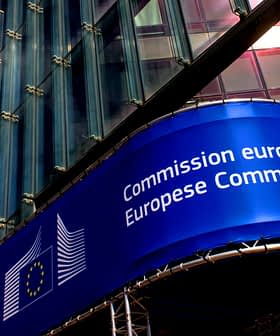High Prices Are Changing How Italians Feel About Olive Oil

Italian households are using less olive oil due to rising prices, with many consumers opting for cheaper alternative oils for cooking instead of olive oil. Despite the price increase, consumption of Italian extra virgin olive oil has still grown by three percent, indicating that consumers appreciate the quality and ‘Made in Italy’ product.
A long-held fear of Italian olive oil producers who were forced to raise their prices has come to pass: Italian households are using less olive oil.
According to the latest sample survey, a growing share of consumers opt to purchase alternative edible oils for cooking as olive oil prices remain well above the average of the previous decade.
Istituto Piepoli found that 30 percent of respondents shifted to new buying habits as the price of extra virgin olive oil rose from €4 to €9 per liter.
See Also:Olive Oil Sales Slump in Spain and Italy Amid Rising PricesAccording to the sample survey published by IlSole24Ore, 12 percent of consumers reduced their spending on extra virgin olive oil by more than half. A further 47 percent of consumers said they now spend 30 percent less on olive oil.
While 55 percent did not change their cooking habits, the rest of the consumers chose cheaper seed oils for cooking, keeping olive oil only as an occasional ingredient. Three percent chose other oils for all their needs.
Only a fraction of the interviewed consumers (three percent) agreed that a fair price tag for one liter of extra virgin olive oil should be around €12, with the vast majority indicating €7 is a fair price.
The survey measured consumer sentiment, including their attitudes toward the economy and personal financial situation. According to several olive oil producers, those numbers do not reflect the actual extra virgin olive oil sales trends.
“Despite the price increase in 2024, consumption of Italian extra virgin olive oil has grown by three percent, demonstrating that consumers appreciate the quality and the traceable ‘Made in Italy’ product,” said David Granieri, president of Unaprol, an olive oil producers’ association, suggesting that the appeal of Italian extra virgin olive oil remains strong.
Zefferino Monini, the chief executive of Monini, one of the largest Italian olive oil producers, agreed, adding that sample surveys only capture consumer mood.
“Nielsen data, which track actual sales, show a slight drop,” he said. “In 2023, extra virgin olive oil sales by large retailers dropped 9.5 percent,” adding that there had been a 7.8 percent decrease for January and February 2024.
Monini said he believes that the promising results of the current harvest will lower prices in the mid-term, bringing them down to €6 per bottle.
While high olive oil prices are mostly attributed to the vastly reduced global olive oil production over the last two years, producers believe those price tags might help change the perception of extra virgin olive oil on the market.
“Consumers are learning that if they need to spend more for the product, the best choice is to spend on a product made in Italy,” said Chiara Coricelli, the chief executive of Pietro Coricelli.
“When extra virgin olive oil was sold at €3 per bottle, it was devalued,” she added. “Those prices were not sustainable as they could not guarantee income across the whole production chain.”
Days before the sample survey surfaced, Andrea Carrassi, the general director of the Italian Association of the Edible Oil Industry (Assitol) olive oil group, warned that extra virgin olive oil could not be considered a commodity.
“This is the right historical moment to convey a message to the consumer, which is that extra virgin olive oil has a very specific value, which means it has to be paid for fairly, just like what has happened with wine,” he said.
Assitol has recently asked national and European institutions to launch relevant communication campaigns to promote the health benefits of extra virgin olive oil.
Sara Merigo, the chief executive of Istituto Piepoli, confirmed that sales data differ from consumer sentiment. She attributed the survey’s significant reactions to the unique relationship Italians have with extra virgin olive oil.
“It is not just a product,” she said. “It represents us on the international stage and has been part of our diet for centuries.”









